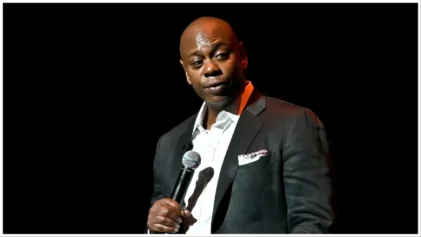Israel – A Hamas rocket killed three Israelis north of the Gaza Strip on Thursday, drawing the first blood from the Jewish state as the Palestinian death toll rose to 13 and a military showdown inched ever closer to all-out war with an invasion of the enclave.
Israeli warplanes bombed targets in and around Gaza city, where tall buildings trembled. Plumes of smoke and dust furled into a sky laced with the vapor trails of outgoing rockets.
Egyptian President Mohamed Mursi said in a televised address to the nation that Israel’s attacks on the Gaza Strip were “unacceptable” and would lead to instability in the region.
In a telephone conversation with U.S. President Barack Obama, Mursi said he had discussed “ways to reach calm and end the aggression,” according to the Washington Post.
The Palestinian Islamist group Hamas claimed it had fired a one-ton, Iranian-made Fajr 5 rocket at Tel Aviv in what would be a major escalation, but there was no reported impact in the Israeli metropolis 30 miles north of the enclave.
Israel’s sworn enemy Iran, which supports and arms Hamas, condemned the offensive begun by the Israel Defence Forces (IDF) as “organized terrorism.”
Israel was more concerned about the mood in Egypt, whose new Islamist government brokered a truce between the two sides on Tuesday only to see it shattered a day later when Israel assassinated the top Hamas military commander.
Hamas is an offshoot of the Muslim Brotherhood which now controls Egypt, Israel’s most powerful Arab neighbor and a crucial partner in the 1979 peace treaty that stands between fragile stability and regional chaos.
Cairo had condemned the offensive and recalled its ambassador from Israel.
In Lebanon, the Iranian-backed Shi’ite militia Hezbollah denounced Israel’s strikes on Gaza as “criminal aggression” and called on Arab states to “stop the genocide.”
Hezbollah has thousands of fighters and some 50,000 rockets in southern Lebanon aimed at the Jewish state, according to the Israeli army. But the northern front remained quiet.
The Israeli army said 156 targets were hit in Gaza, 126 of them rocket launchers. It said 200 rockets had struck Israel since the start of the operation, 135 of them since midnight.
Israel’s Iron Dome interceptor system, which singles out rockets heading for populated areas, shot down 18 rockets in the first hours of day two of Operation Pillar of Defence, it said.
One of those that got through caught its victims before they could reach the blast shelters that are everywhere in the Negev region, target for sporadic Palestinian rocket attacks from Gaza for the past five years.
Israeli police said the three died when a rocket hit a four-story building in the town of Kiryat Malachi, some 15 miles north of Gaza. They were the first Israeli fatalities of the latest conflict to hit the coastal region.
The offensive began on Wednesday when a precision Israeli air strike assassinated Hamas military mastermind Ahmed Al-Jaabari, and Israel shelled the enclave from land, air and sea.
The 13 killed in Gaza included Jaabari and six Hamas fighters plus six civilians, among them a pregnant woman with twins, an 11-month old boy and two infants, according to the enclave’s health ministry. Medics reported at least 130 wounded.
Expecting days or more of fighting, Israel warned Hamas that all its men were targets. Israeli warplanes dropped leaflets in Gaza telling residents to keep their distance from militants and Hamas facilities.
The United States condemned Hamas, shunned by the West as an obstacle to peace for its refusal to renounce violence and recognize Israel.
“There is no justification for the violence that Hamas and other terrorist organizations are employing against the people of Israel,” said Mark Toner, deputy State Department spokesman.
The U.N. Security Council held an emergency meeting late on Wednesday to discuss the Israeli assault. It called for a halt to the violence, but took no action.
Gaza has an estimated 35,000 Palestinian fighters, no match for Israel’s F-16 fighter-bombers, Apache helicopter gunships, Merkava tanks and other modern weapons systems in the hands of a conscript force of 175,000, with 450,000 in reserve.
The new offensive has sparked panic across the Gaza Strip, which Hamas has ruled since seizing power there in 2007. Palestinians rushed to markets to stock up on essentials before seeking shelter; by nightfall, an eerie calm – interrupted by sporadic airstrikes and the drone of jets and helicopters overhead – had settled over the streets.
The strikes have evoked images of the punishing Israeli offensive of 2008-2009, which Israel said was a response to unrelenting rocket attacks. That three-week operation left 13 Israelis and more than 1,000 Palestinians, including hundreds of civilians, dead.


